
Beer is one of the oldest types of alcoholic drinks in the world, and the most widely consumed. It is the third most popular drink overall after potable water and tea. It is produced by the brewing and fermentation of starches, mainly derived from cereal grains—most commonly malted barley, though wheat, maize (corn), rice, and oats are also used. During the brewing process, fermentation of the starch sugars in the wort produces ethanol and carbonation in the resulting beer. Most modern beer is brewed with hops, which add bitterness and other flavours and act as a natural preservative and stabilising agent. Other flavouring agents such as gruit, herbs, or fruits may be included or used instead of hops. In commercial brewing, the natural carbonation effect is often removed during processing and replaced with forced carbonation.

Fuller's Brewery in Chiswick, west London, England, is the former brewing division of Fuller, Smith & Turner PLC. It was a family-run business from its foundation in 1845 until 2019, when it was sold to the Japanese international beverage giant Asahi.

Beer was introduced to Canada by European settlers in the seventeenth century. The first commercial brewery was La Brasseries du Roy started by New France Intendant Jean Talon, in Québec City in 1668. Many commercial brewers thrived until prohibition in Canada. The provincial and federal governments' attempt to eliminate "intoxicating" beverages led to the closing of nearly three quarters of breweries between 1878 and 1928. It was only in the second half of the twentieth century that a significant number of new breweries opened up. The Canadian beer industry now plays an important role in Canadian identity, although globalization of the brewing industry has seen the major players in Canada acquired by or merged with foreign companies, notably its three largest beer producers: Labatt, Molson and Sleeman. The result is that Moosehead, with an estimated 3.8 percent share of the domestic market in 2016, has become the largest fully Canadian-owned brewer.

Beer has been brewed in England for thousands of years. As a beer brewing country, it is known for top fermented cask beer which finishes maturing in the cellar of the pub rather than at the brewery and is served with only natural carbonation.

Brewery Ommegang is a brewery located near Cooperstown, New York, United States, that specializes in Belgian-style ales.
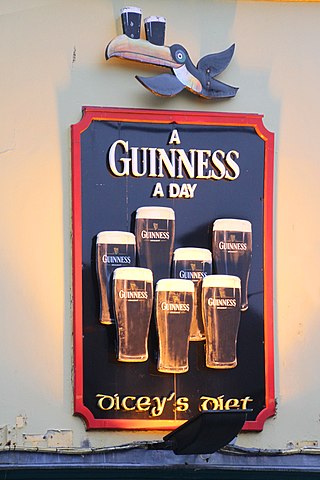
Brewing in Ireland has a long history. Production currently stands at over 8 million hectolitres, and approximately half the alcohol consumed is beer.

Mountain Goat Beer is a brewery in Richmond, Victoria, Australia. The brewery was founded in 1997 by Cam Hines and Dave Bonighton. The company's first commercial brew, 'Hightale Ale' amber ale, was released in October 1997. Mountain Goat Beer was purchased by Asahi in September 2015.

Worthington Brewery, also known as Worthington & Co. and Worthington's, is a British brewer founded by William Worthington in Burton upon Trent in 1761. It is the second oldest continuously brewed British beer brand, after Whitbread. The best known Worthington beers are its Creamflow nitrokeg bitter and White Shield India Pale Ale.

Beer in the United Kingdom has a long history, and has quite distinct traditions. Historically the main styles were top-fermented Bitters, Porters, Stouts and Milds, but after World War II lagers took over half the market by volume. The Campaign for Real Ale (CAMRA) was founded in 1971 and has encouraged the preservation and revival of traditional styles of ale. In particular CAMRA has promoted cask conditioned beer, which completes its maturation in casks in the cellar of the pub rather than at the brewery. As of 2014 the UK drank 634 million imperial pints of cask ale, representing 60% of ale in pubs and restaurants and 17% of all beer in pubs. In total 42.42 million hectolitres of beer were produced in 2013 of which 48% was sold in the off-trade.

Emerson's Brewery Limited is a microbrewery located in Dunedin, New Zealand established in 1992. Emerson's produces eight year-round beers and three seasonal beers. In November 2012 the brewery was purchased by Australasian company Lion, which in turn is owned by Japanese brewing giant Kirin.

The Malt Shovel Brewery is an Australian brewery owned by Lion, a subsidiary of the Japanese conglomerate Kirin. It is located in Camperdown, New South Wales. Malt Shovel is best known for its James Squire range of beers. The beer is named after the convict turned Australia's first brewer James Squire, who also went on to grow Australia's first hops and is said to have created Australia's first commercial brewery.

The beers of the Caribbean are unique to each island in the region, although many are variants of the same style. Each island generally brews its own unique pale lager, the occasional stout, and often a non-alcoholic malta beverage. Contract-brewing of international beers is also common, with Heineken Pilsener and Guinness Foreign Extra Stout being the most popular. The beers vary between the islands to suit the taste and the brewing method used.
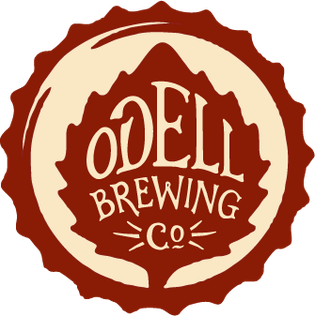
Odell Brewing Company is an independent craft brewery in Fort Collins, Colorado. It's the 23rd largest U.S. craft brewing company by the Brewers Association. Odell Brewing is known for their hop-forward and balanced IPAs.
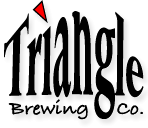
Triangle Brewing Co. (TBC) was a microbrewery owned and operated entirely by business partners Rick "the Brewer" Tufts and Andy "the Bloke" Miller who, in 2005, resettled in Durham, North Carolina from Connecticut. Andy Miller had extensive local restaurant management experience, and Rick Tufts apprenticed at Flying Fish Brewing Company and was an avid homebrewer long before founding a new brewery. TBC began selling beer on July 4, 2007 and was the only microbrewery in Durham. The arrival of a microbrewery in Durham is arguably part of the current downtown art, building, and cultural Renaissance.
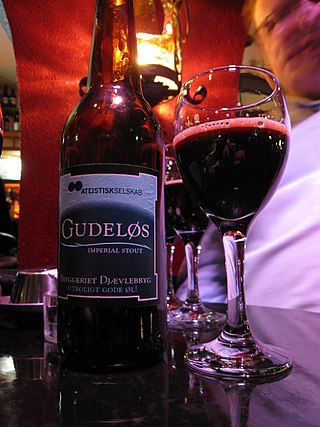
Bryggeriet Djævlebryg is a Danish microbrewery established in June 2006. The brewery is a so-called phantom brewery and brews its beers at Herslev Bryghus near Roskilde. From 2006–2009 the beers were brewed at Brøckhouse in Hillerød.

Revolution Brewing is a brewery in Chicago, Illinois. It was founded as a brewpub in 2010 on Milwaukee Avenue in the Logan Square neighborhood. A separate production brewery, with canning and bottling lines and a tap room, opened in 2012 about a mile from the brewpub, on Kedzie Avenue in the Avondale neighborhood.
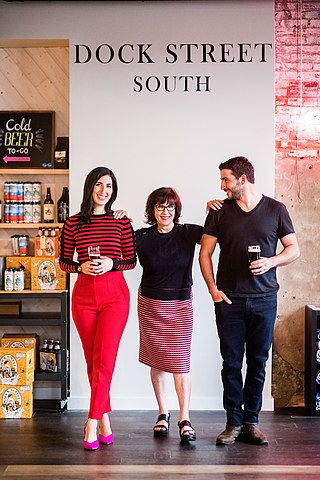
Dock Street Brewing Company is an independent craft brewing company with a 10,500 square foot brewpub and production brewery in the Point Breeze neighborhood of Philadelphia, PA, and a 1,000 square foot tasting room in the Fishtown neighborhood of Philadelphia. Established in 1985, it claims to be the first craft brewing company based in the Philadelphia area following Prohibition and one of the first in the country. The name Dock Street was chosen in honor of the seaport district of the same name in Philadelphia, which was the largest producer of beer in the then newly-formed United States in the late 1700s.

Mash Brewing Company is a microbrewery in Henley Brook, located within the Swan Valley region of Western Australia.

Dragonmead is a U.S. microbrewery, meadery and brewpub founded by Earl Scherbarth, Larry Channell, and Bill Wrobel in January 1997. The small brewery produces many varieties of beer, wine, and mead, and has received awards including gold medals at the World Beer Cup.

Porter is a style of beer that was developed in London, England in the early 18th century. It is well-hopped and dark in appearance owing to the use of brown malt. The name is believed to have originated from its popularity with porters.




















